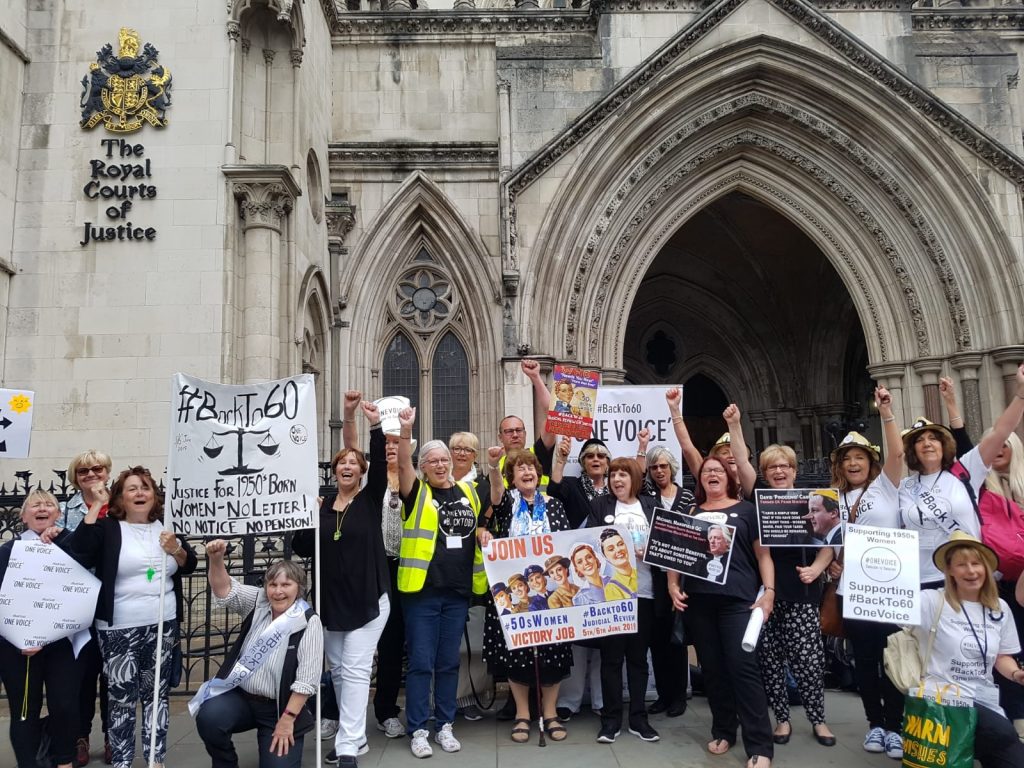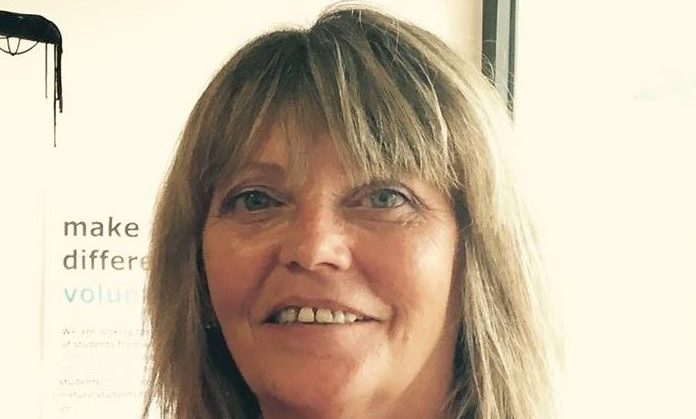A 61-year-old mum fears she may need to sell her home after being told an increase in her pensionable age from 60 to 66 means she will lose £45,000.
Mum-of-two Joy Scott, from Great Yarmouth, is among an estimated 3.8 million women born in the 1950s affected by the government’s efforts to equalise men and women’s state pension ages.
Two women affected by the change took the Department for Work and Pensions (DwP) to a judicial review this week amid accusations that it breaches age and sex discrimination laws.
In 2011, Joy found out from a colleague that she would no longer be receiving her pension aged 60 – but would have to a wait further six years.
“I had never received any letter to tell me that was going to happen,” she said. “I asked [the DwP] for my pension forecast then I found out I had lost £45,000.”
She told RightsInfo she has been a single parent for most of her life and worked “a hard graft”, supporting children who have been excluded from mainstream education for more than 20 years.
The stress of the situation was such that she had to take some time off work, she said.
And then in January this year, Joy was made redundant after her employer underwent a restructure.
“I now have to find work until I am 66,” she said. “There’s nothing else I can do.
“Because of the stress I have, I don’t know if I can go back into education.
“I might have to even sell my house. I have worked hard to buy my own house.”
While currently surviving on her redundancy package, Joy fears she may soon have to sign up for controversial state benefit Universal Credit.
“They have basically ripped us all off,” she said. “I think it is criminal the way they have done it.”
Yesterday, Joy joined protest groups Norfolk Broads and BackTo60 in gathering outside the Royal Courts of Justice, in central London, to call on the government to restore their pensions.
Judicial Review
 Campaign group BackTo60 gather outside the Royal Courts of Justice on Wednesday, June 5. Image Credit: Aaron Walawalkar
Campaign group BackTo60 gather outside the Royal Courts of Justice on Wednesday, June 5. Image Credit: Aaron Walawalkar
A two-day High Court hearing took place this week to determine whether the department had acted unlawfully in its efforts to equalise pensions ages.
The review was brought by claimants Julie Delve, 61, and Karen Glynn, 62, who were both due to receive their state pensions in 2018 and 2016 respectively but, following legislative changes, must now both wait until they are 66.
Their barristers argued the changes in law resulted in a “proportionately much greater drop” in women’s income in relation to men; hit women born on or after 6 April 1950 hardest; and were introduced without adequate notice.
This, they argued, constitutes a breach of Article 14 of the Human Rights Convention, which guards against discrimination on the basis of age and sex, as well as being contrary to the general principles of EU law.
However the government’s legal counsel argued that the pension age changes are exempt from EU law and the Human Rights Convention since they are not the cause of the “historic and economic” disadvantages women born in the 1950s face.
They added that the government did not have a duty of fairness to notify women that their pension age would increase, the changes being debated and ratified publicly in parliament.
A judgment will be handed down at an unspecified date.
What Does The Government Say?
A DWP spokesperson told RightsInfo on Wednesday: “It would not be appropriate to comment on ongoing litigation.”
Read more on this subject:







